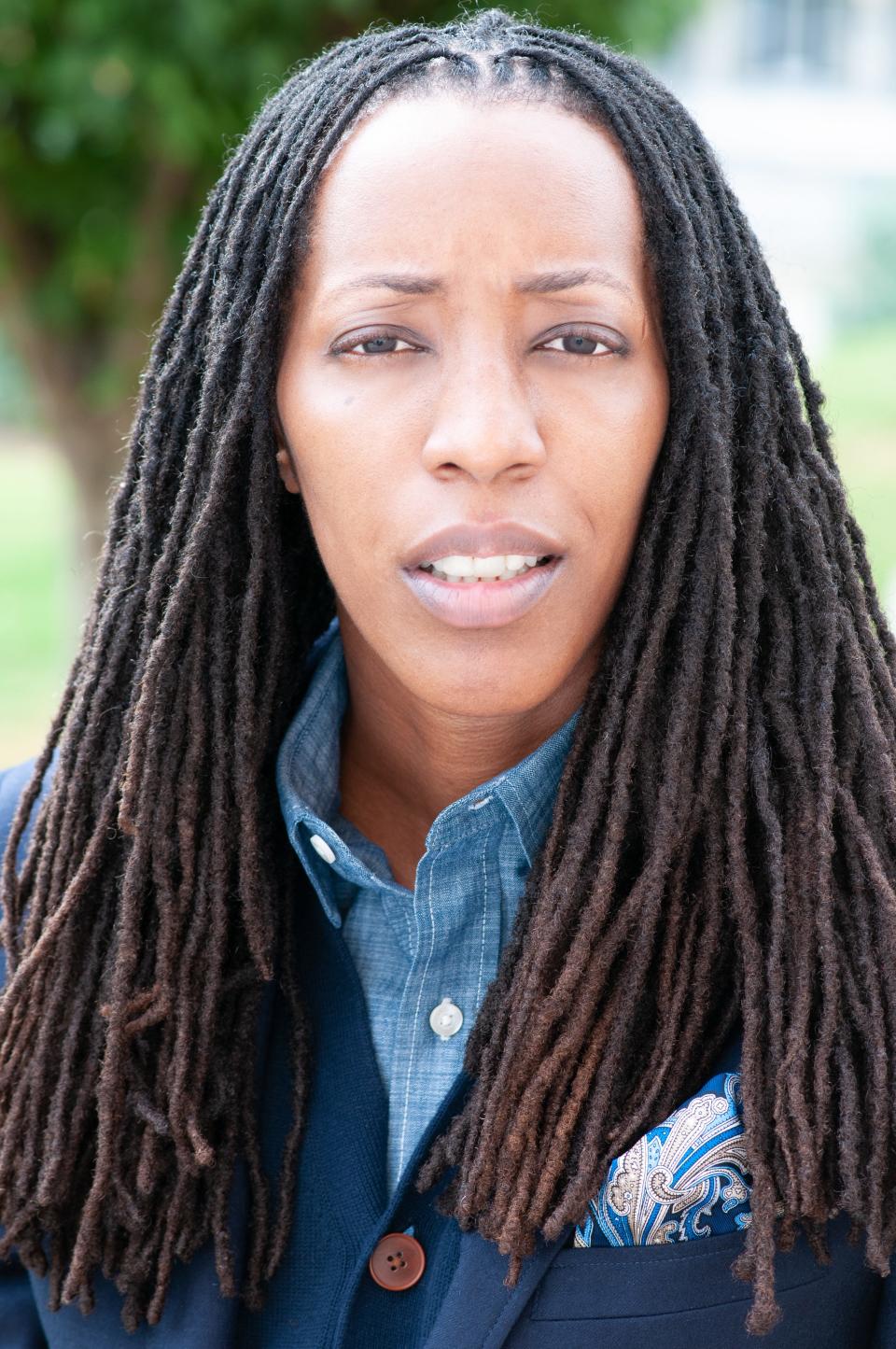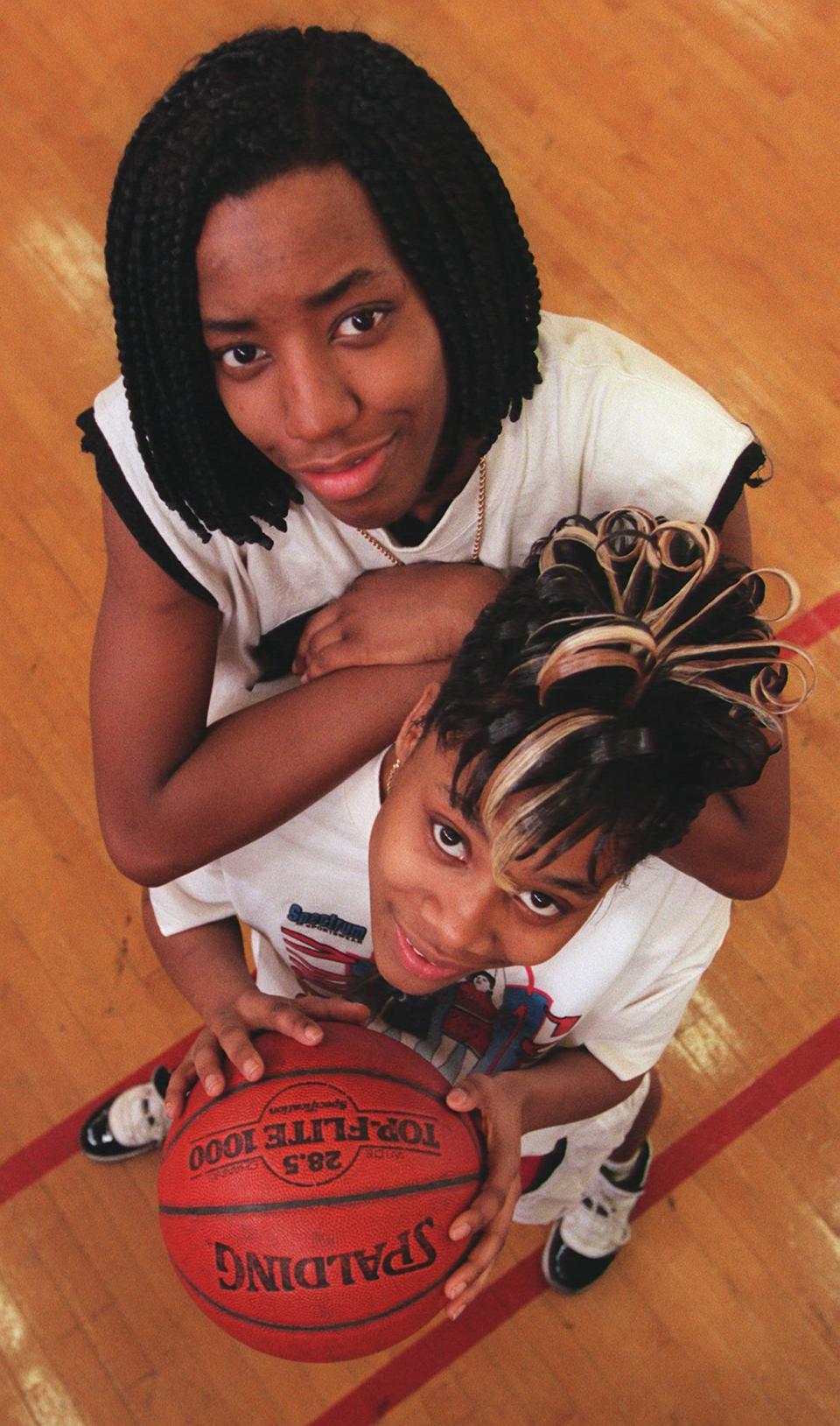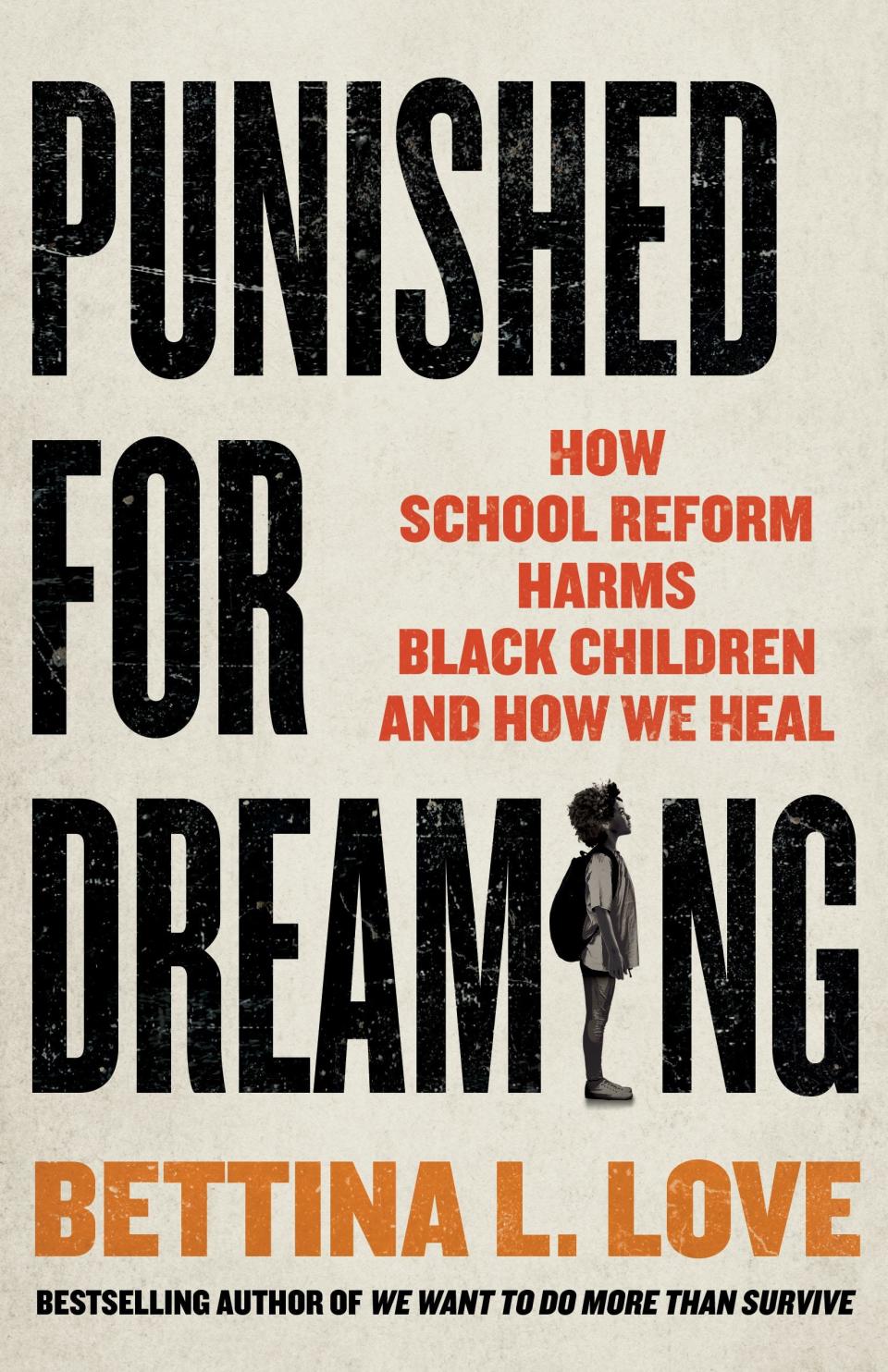Edison grad Bettina Love asks in new book: 'Where did all my classmates go?'
- Oops!Something went wrong.Please try again later.
The seed for Bettina Love's latest book on the harm of school reform was first planted nearly 30 years ago during her time at Edison Tech High School in Rochester — in particular, during her high school graduation ceremony in June 1997.
Love was one of more than 600 children who entered Edison together as ninth-graders in 1993, she said. Four years later, about 180 received diplomas.
"I remember being on that stage, walking across that stage and asking myself: 'Where is everybody?'" she said.

The fate of those other children is at the heart of "Punished For Dreaming," published this month by St. Martin's Press. Love, now a professor at Columbia University, will be in Rochester Friday as part of a sold-out daylong conference also featuring the rapper and activist Common.
'We were labeled thugs ... and school became a place we had to survive'
"I’ve always wondered, 'Where did all my classmates go?'" she said. "And what I’ve learned is that we were pushed out of school. We were labeled thugs and crack babies and super-predators, and school became a place we had to survive."
"Punished For Dreaming" places the degraded landscape of urban school reform into a broader societal trend toward punishment and incarceration for Black people.
"Our generation ... came of age when mass incarceration and educational policies put unmistakable, identical targets on our backs," she wrote. "When they looked at us, the theme song of Cops played in their heads."
The solution, she proposes: reparations. Perhaps $2 trillion from both public and private sources. She describes how she arrived at that figure in the book and calls it a conservative estimate.
"Repair, healing and transformation are the only hope for our crumbling democracy," Love wrote. "The path to and through repair and transformation is long overdue, but it is possible."
Schools as 'spaces of surveillance'
Love in high school was known as an athlete first.
A three-time girl's basketball All-Greater Rochester selection, she averaged 32 points and 13 rebounds a game as a senior at Edison and earned a scholarship to Division 1 Old Dominion University.

That was supposed to be her ticket to success. Once in college, though, she realized that she'd been classified as a "dumb Black jock," studying first aid and recreation while her white and middle-class teammates were majoring in pre-med or communications.
Her academic advisor confirmed her suspicions, as she recounts it, telling her: "You are from the inner city and went to an inner-city school. You are here to play basketball."
Love's early childhood in Rochester in the 1980s coincided with the rise of the still-dominant school reform era. Principles from both the business and criminal justice worlds were borrowed liberally, she argues, resulting in urban schools that were more punitive than beneficial.
"We were tough on crime and tough on public education," she wrote. "Under the slogans of 'school accountability' and 'school safety,' schools morphed into spaces of surveillance, confinement, and state-sanctioned violence to Black bodies."
The same paradigm continues today, Love argues, as charter schools, consultants and vendors make billions of dollars pitching solutions to families and schools in desperate situations.
CHECK OUT OUR PODCAST: The D&C bring you "City on Fire," about life in the streets of Rochester during the summer, by reporter Rob Bell. Listen below or on your podcast platform of choice.
Abolition and reparations
In an earlier book, "We Want To Do More Than Survive," Love said the solution lies in abolitionism: uprooting ties to the prison-industrial complex, she said, and reimagining schools as "based on intersectional justice, antiracism, love, healing, and joy."
In "Punished For Dreaming" she adds the call for reparations, even while conceding that the political landscape is unpromising at present.
"I’m not a politician; I’m a researcher," she said. "My job is to put ideas out there and maybe the politicians, the activists, the policy wonks pick it up. It takes so many people for change to occur."

She noted, though, that the basic tenets of her proposal would benefit all children, not just Black ones, in higher teacher salaries, more inclusive pedagogical practices and less standardized testing.
"It’s not just Black schools that are crumbling in this country; American schools are crumbling," she said. "What people don’t understand is that when Black folks fight for justice, everyone wins. When we fight for voting rights, for civil rights – everybody wins. Democracy wins."
Love will be a part of UR's Boundless Together conference Sept. 22 at the Joseph Floreano Riverside Convention Center. Common will be the keynote speaker. The conference is sold out.
Justin Murphy is a veteran reporter at the Democrat and Chronicle and author of "Your Children Are Very Greatly in Danger: School Segregation in Rochester, New York." Follow him on Twitter at twitter.com/CitizenMurphy or contact him at jmurphy7@gannett.com.
This article originally appeared on Rochester Democrat and Chronicle: Rochester's Bettina Love releases new book, Punished For Dreaming

